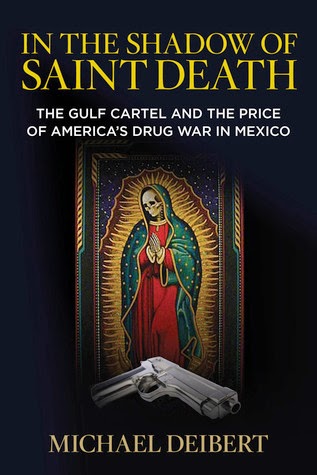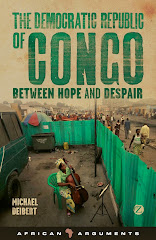Black Crown: Henry Christophe, the Haitian Revolution and the Caribbean’s Forgotten Kingdom by Paul Clammer
A great contribution to Haitian studies by the British author Paul Clammer, this book vividly brings to life the dramatic era of the complex and mercurial independence leader who would go on to become Haiti’s only king.
Port-au-Prince au cours des ans: Tome II 1804-1915 by Georges Corvington
Two volumes originally published by Haiti’s Éditions Henri Deschamps collected in this 2007 single volume by Montréal’s Éditions du Centre International de Documentation et d'Information Haitienne (CIDIHCA), this sweeping history of Haiti’s capital by the Haitian historian Georges Corvington is a must for any scholar of the country.
Prospero's Cell by Lawrence Durrell
An impressionistic and disparate memoir of the Ionian island of Corfu by the British author who lived there from 1935 to 1940, though this book has some moments of very nice prose, I still found it a little unfocused and a bit too in love with his own voice to be truly captivating. In terms of evoking Greece in all its glory and mystery, I found Henry Miller’s The Colossus of Maroussi a much more compelling read.
The Portable Gerbasi: Selected Early and Late Poems by Vicente Gerbasi
This collection of poems which bookend the career of the Venezuelan writer and diplomat Vicente Gerbasi are masterfully translated by Guillermo Parra and vibrate with the life and colour of that South American nation, which hard times and bad government may have dimmed in recent years but never fully extinguished.
The Life of John Wesley: A Brand from the Burning by Roy Hattersley
This is a very engaging biography by a British politician and journalist focusing on the long an dramatic life of the severe and highly idiosyncratic founder of Methodism and gives the reader a good flavour for the religious and political battles being fought in 18th century England.
A Kestrel for a Knave by Barry Hines
Published in 1968, this novel recounts the story of a young working-class boy named Billy Casper from a mining area in Northern England who finds and gradually trains a kestrel (a falcon-like bird), which provides a respite from his life with a rather nasty brother and mother (his father is absent) and sadistic schoolmates and teachers. The long passages focusing on sport kind of lost me, but nevertheless it’s a book that gives the reader a feeling for the loneliness and struggles that can accompany youth as well as the moments of joy and transcendence.
For Women and the Nation: Funmilayo Ransome-Kuti of Nigeria by Cheryl Johnson-Odim
This books tells the extraordinary life story of the Nigerian political activist, educator and feminist Funmilayo Ransome-Kuti. The mother of musician Fela Aníkúlápó Kuti, Ransome-Kuti had an accomplished and impressive life in her own right. Born in Nigeria’s southwestern Ogun State in southwestern Nigeria to an aristocratic family, she gained the nickname the “Lioness of Lisabi” for her leadership of the Abeokuta Women's Union (AWU). As well as telling the story of a patriot and committed internationalist, the book is also a fascinating survey of the politics, society, hierarchy, and customs of colonial and post-colonial Nigeria.
Comrades and Enemies: Arab and Jewish Workers in Palestine 1906–1948 by Zachary Lockman
A fascinating and valuable look into the tensions and contradictions between the desire of early left-wing Zionists to build the Jewish state of Israel while at the same time maintaining some kind of fidelity to their ideals of an empowered and motivated working-class across national borders, this book delves deeply into complex motivations and political-religious dynamics better than mere slogans ever could.
Carte Blanche by Carlo Lucarelli
The first in a trilogy of crime novels featuring Inspector De Luca, this book takes place as Italy’s fascist Repubblica di Salò sputters to its collapse and is as interesting for its depiction of a compromised and often depraved society as it is for the murder mystery at its heart.
El Desterrado de París: Biografía del Dr. Ramón Emeterio Betances (1827-1898) by Félix Ojeda Reyes
This is an impressive work of scholarship by the Puerto Rican historian Félix Ojeda Reyes examining the life of Ramón Emeterio Betances, physician, diplomat, intellectual and perhaps Puerto Rico’s most lucid and forward-looking patriot.
Collected Poems 1950-1993 by Vernon Scannell
The life’s work of a British poet whose ruling passions were the somewhat unlikely combination of literature and boxing, this is a lovely volume that continues the wonderful poem “Autumn,” which evokes a kind of London that will somehow always be with us.
Race, Class, and Political Symbols: Rastafari and Reggae in Jamaican Politics by Anita M. Waters
A very interesting book that delves into the complexities of Jamaica’s political battles between 1967 and 1983, this sociological work examines how the Jamaica Labour Party and People's National Party sought to come to terms with and at times co-opt the culture signifiers of Jamaica’s homegrown religion and rebel music.






